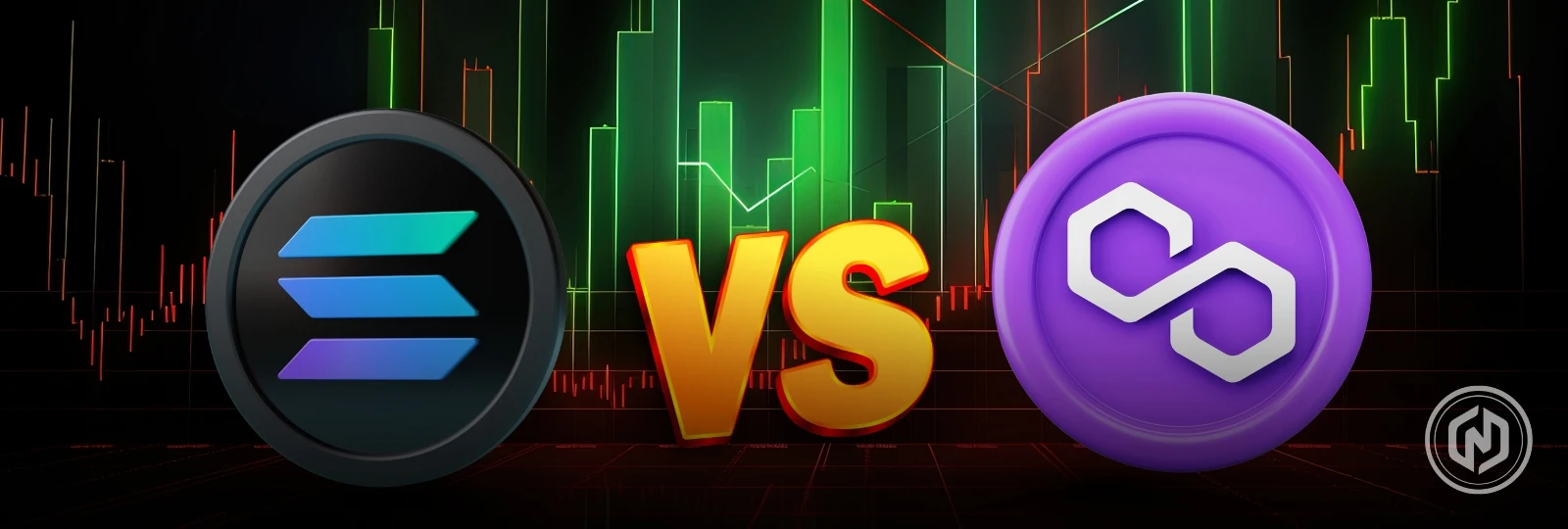The blockchain space is rapidly evolving, with new platforms and technologies emerging every quarter. The technology is gaining widespread attention at an unprecedented rate, with more developers, users, and investors entering the space every day. Amidst this dynamic industry, two platforms have managed to stand out from the crowd: Solana and Polygon.
With their innovative approaches to scalability, security, and usability, these blockchain giants are competing fiercely for market share, developer mindshare, and user adoption. As the industry continues to mature, the battle between Solana and Polygon will likely intensify, with significant implications for the future of blockchain technology.
Polygon vs Solana
Polygon is making waves with its focus on real-world use cases, particularly in the areas of stablecoins and payments. According to CEO Sandeep Nailwal, the platform’s commitment to building sustainable, real-world use cases has been a key driver of its success. By targeting truly global industries and leveraging the transparency and efficiency of blockchain networks, Polygon is poised to make further progress in the years to come.
However, Solana is not far behind. The blockchain platform has been gaining momentum, with recent reports highlighting its impressive growth in developer adoption. According to Electric Capital’s 2024 annual report, Solana added 11,534 new developers, claiming 1st position in acquiring new developers. This growth is a testament to the platform’s appeal to developers and its potential to disrupt the status quo.
Latest Ecosystem Developments
Solana
CME Group’s Solana Futures Trading: The CME Group has recently announced options trading for Solana and XRP futures, offering clients more flexibility in their trading strategies. The new options are available for SOL, Micro SOL, XRP, and Micro XRP futures, with daily, monthly and quarterly expiries.
Solana ETF Hype: The 21Shares Solana ETF has taken a significant step towards trading commencement, following the filing of Form 8-A12B registration statement with the US Securities and Exchange Commission on October 15. This filing, which confirms the ETF’s registration under the Securities Exchange Act of 1934, is a crucial step before trading. The document specifies Cboe BZX Exchange as the trading venue. This development marks a significant milestone for Solana, paving the way for the first US-listed Solana ETF to become available for investors.
Developer Adoption: According to Electric Capital’s 2024 annual report, Solana has emerged as the #1 ecosystem for new developers,” with 11,534 new developers joining the platform. This represents a remarkable 83% year-over-year growth in its total developer count. While Ethereum maintains a lead in absolute numbers, Solana’s growth momentum and market attention are unparalleled.
Polygon
French Bank’s EUROD Launch: ODDO BHF, a financial giant in France, has recently launched EUROD, a stablecoin backed by the euro, on Polygon. Polygon announced this development via an official X post. The token is listed on Bit2me, a leading crypto exchange.
Stripe Collaboration: Stripe, a leading payment processing company, has introduced stablecoin subscription payments on Polygon and Base networks, allowing businesses to accept recurring payments in USDC. This move bridges traditional payments and decentralised finance, enhancing the efficiency and transparency of transactions.
Real-World Use Cases: Polygon is making significant strides in real-world use cases. Its significant partnerships are a key driver of its growth. The platform supports over 60% of tokenized bonds worldwide. Major enterprises like Meta and Coca-Cola trust Polygon for its reliability. It is also exploring Digital Asset Treasuries (DATs), aiming to onboard NGOs supporting prisoners, despite the time-consuming legal framework. The platform is also venturing into AI, participating in the Sentiment AI project, which focuses on AI agents and agentic payments, further diversifying its ecosystem beyond stablecoins and payments
Interestingly, a recent survey by Sherlock Communications revealed a regional nuance, with Latin American developers showing a strong preference for Ethereum and Polygon.



